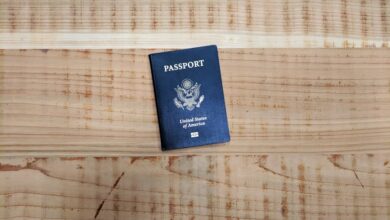what is i 821d How to apply for it?

The i 821d is a program that holds significant importance for undocumented individuals in the United States. Understanding its eligibility, application process, benefits, and limitations is crucial for those seeking protection from deportation and work authorization. This article aims to provide a comprehensive overview of the i 821d program, shedding light on its various aspects and addressing common misconceptions.
Key Takeaways
- i 821d is a program that provides temporary protection from deportation for certain undocumented immigrants who came to the US as children.
- To be eligible for i 821d, applicants must have arrived in the US before the age of 16, have lived in the US continuously for at least 5 years, and meet other criteria.
- To apply for i 821d, applicants must submit an application, pay a fee, and provide supporting documentation.
- Benefits of i 821d include protection from deportation, work authorization, and the ability to obtain a driver’s license and social security number.
- i 821d lasts for 2 years and can be renewed if the applicant continues to meet the eligibility requirements.
What is i 821d?
The i 821d, also known as Deferred Action for Childhood Arrivals (DACA), was introduced in 2012 by the Obama administration. Its purpose is to provide temporary relief from deportation and work authorization to certain undocumented individuals who arrived in the United States as children. The program aims to protect individuals who have grown up in the United States and have established roots in their communities.
Who is eligible for i 821d?
To be eligible for i 821d, individuals must meet specific criteria. They must have arrived in the United States before turning 16 years old and have continuously resided in the country since June 15, 2007. Additionally, they must be currently enrolled in school, have graduated from high school, obtained a GED certificate, or be honorably discharged from the military. It is important to note that meeting these criteria does not guarantee eligibility, as each case is evaluated individually.
There are common misconceptions about eligibility for i 821d. One misconception is that individuals must have entered the United States legally to qualify for the program. However, this is not true; individuals who entered without inspection or overstayed their visas may still be eligible. Another misconception is that only individuals of a certain age group can apply for i 821d. In reality, there is no upper age limit for eligibility.
How to apply for i 821d?
| Requirements | Documents | Steps |
|---|---|---|
| Must have arrived in the US before the age of 16 | Birth certificate, passport, or other government-issued ID | Complete Form I-821D |
| Must have continuously resided in the US since June 15, 2007 | Proof of residence such as school records, medical records, or bills | Submit biometric information (fingerprints and photo) |
| Must be currently in school, have graduated from high school, have obtained a GED, or be an honorably discharged veteran | Proof of education such as transcripts, diplomas, or GED certificate | Pay the filing fee |
| Must not have been convicted of a felony, significant misdemeanor, or three or more other misdemeanors | Criminal record check | Attend biometrics appointment |
Applying for i 821d involves a step-by-step process that requires careful attention to detail. The first step is to gather the necessary documents, including proof of identity, proof of arrival in the United States, and evidence of eligibility. It is crucial to ensure that all documents are accurate and up to date.
Once the documents are gathered, the application form must be completed and submitted along with the required fees. It is important to note that the i 821d program has specific filing periods, and applications can only be submitted during these designated times. After submitting the application, it undergoes a thorough review by immigration authorities.
What are the benefits of i 821d?
One of the primary benefits of i 821d is protection from deportation. Once approved, individuals are granted a temporary reprieve from removal proceedings, allowing them to remain in the United States without fear of being deported. This protection provides a sense of security and stability for those who have built their lives in the country.
Another significant benefit of i 821d is work authorization. Approved individuals receive an Employment Authorization Document (EAD), which allows them to legally work in the United States. This opens up employment opportunities and enables them to contribute to the economy and support themselves and their families.
Additionally, individuals with i 821d may have access to certain government benefits, such as obtaining a driver’s license or qualifying for in-state tuition rates at colleges and universities. However, it is important to note that eligibility for government benefits varies by state and program, and not all benefits are available to i 821d recipients.
How long does i 821d last?
The duration of i 821d status is not indefinite. Initially, individuals granted i 821d status receive protection from deportation and work authorization for a period of two years. After this period, they must apply for renewal to maintain their status.
The renewal process for i 821d involves submitting a new application along with updated documentation and fees. It is crucial to apply for renewal before the expiration of the current status to avoid a lapse in protection and work authorization. The renewal timeline and process are similar to the initial application, requiring careful attention to detail and adherence to filing periods.
What are the requirements for i 821d renewal?
To be eligible for i 821d renewal, individuals must continue to meet the initial eligibility criteria. They must have continuously resided in the United States since their last approval, have not departed the country without advance parole, and have not been convicted of certain crimes or pose a threat to national security.
The renewal process typically involves submitting updated documentation, such as proof of continued education or military service, as well as evidence of continuous residence. It is important to note that each case is evaluated individually, and meeting the renewal requirements does not guarantee approval.
Can i 821d lead to permanent residency?
While i 821d does not directly lead to permanent residency, it is possible for individuals with i 821d status to transition to permanent residency through other avenues. One such avenue is marriage to a U.S. citizen or permanent resident. If an individual with i 821d status marries a U.S. citizen or permanent resident and meets other eligibility requirements, they may be able to apply for a green card.
Another potential pathway to permanent residency is through employment-based sponsorship. If an employer is willing to sponsor an individual with i 821d status for a work visa and subsequent green card application, it may be possible to obtain permanent residency.
What are the limitations of i 821d?
While i 821d provides significant benefits, it also has certain limitations that individuals should be aware of. One limitation is restrictions on travel outside the United States. Individuals with i 821d status must obtain advance parole before leaving the country; otherwise, they risk losing their protected status.
Additionally, i 821d recipients are ineligible for certain government benefits, such as federal financial aid for higher education. It is important to research and understand the specific limitations and eligibility requirements for government programs before applying for i 821d.
Furthermore, i 821d provides limited protection for family members. While immediate family members of i 821d recipients may be eligible for certain benefits, such as work authorization, they do not receive the same protection from deportation unless they individually qualify for i 821d themselves.
How does i 821d affect employment opportunities?
Obtaining i 821d status can have a positive impact on job prospects for individuals. With work authorization, they can legally seek employment in the United States and no longer have to rely on under-the-table jobs or face exploitation due to their undocumented status.
However, it is important to note that employers have certain requirements and responsibilities when hiring individuals with i 821d status. Employers must verify the individual’s work authorization through the completion of Form I-9 and ensure compliance with employment laws and regulations. It is crucial for individuals with i 821d status to understand their rights and responsibilities in the workplace.
What happens if i 821d application is denied?
There are various reasons why an i 821d application may be denied. Common reasons include failure to meet the eligibility criteria, insufficient evidence, or errors in the application. If an application is denied, individuals have options for appeal or reapplication.
The appeals process involves submitting a request for review of the denial decision to the appropriate immigration authority. It is important to carefully review the denial notice and follow the instructions provided for filing an appeal. Alternatively, individuals may choose to reapply for i 821d after addressing any issues that led to the initial denial.
What are the alternatives to i 821d?
While i 821d provides temporary relief from deportation and work authorization, there are other forms of relief available for undocumented individuals. One alternative is applying for asylum, which is available to those who have a well-founded fear of persecution in their home country based on factors such as race, religion, nationality, or membership in a particular social group.
Another alternative is applying for a U visa, which is available to victims of certain crimes who have cooperated with law enforcement in the investigation or prosecution of the crime. The U visa provides temporary legal status and work authorization and may eventually lead to permanent residency.
It is important to weigh the pros and cons of each alternative option and seek legal advice to determine the best course of action based on individual circumstances.
In conclusion, understanding the i 821d program is crucial for undocumented individuals seeking protection from deportation and work authorization. This article provided a comprehensive overview of i 821d, addressing its eligibility criteria, application process, benefits, limitations, and alternatives. It is important for individuals considering i 821d or any other immigration matter to seek legal advice and guidance to navigate the complex immigration system effectively.
you can download i 821d form from here: i 821d form



